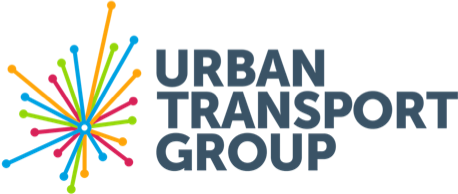Consultation response
Policy
Our latest reports, briefings and consultation responses are listed below. Use the search or filter functions to discover specific policy documents.
You can also see our full list of policy topics via the link below.
Report
Inside track - The state of transport 2024
Report
A brighter transport future - Member and partnership opportunities
Consultation response
Children, young people and the built environment
Report
A Smoother Ride – Can capital investment deliver more efficient bus services?
Consultation response
Electric Vehicles
Report
A Smoother Ride - Reviewing the Bus Services Act 2017 to empower local areas
Consultation response
Strategic transport objectives
Briefing
National Initiatives on Skills and Diversity for the Transport Sector
This resource brings together national initiatives on skills and diversity with relevance to the transport sector. This is the only such resource for the transport sector. It can help organisations looking to diversify their workforce, help to raise the profile of careers in transport to the next generation and support inclusion and wellbeing in the current transport workforce.
Briefing
Ticket office closures: a UTG position paper
Consultation response
GBRTT commission on simpler, better industry processes
Briefing
Changing travel habits and what they mean for future transport trends
This briefing explores some of the background factors that are driving current transport trends, and what these might mean for the patronage recovery moving forwards.
Briefing
How the energy sector works: a guide for transport professionals
Briefing
Public transport’s funding crisis – and how to fix it
This short read briefing gives an overview of the current funding challenges faced by local public transport and what Government should do to address them.
Report
Urban Public Transport Funding - Options for Reform
This report, produced by consultants Steer for the Urban Transport Group, explores the options for reforming local public transport funding.
The report also considers the implications of ending covid-related bus funding in April 2023, warning that bus services could be reduced and fares increased as a result.
Consultation response
Submission to Spring Budget 2023
Consultation response
Regulated access charges
Report
Dream ticket? The challenges and opportunities of delivering smart ticketing in the city regions
Consultation response
Review of Net Zero: call for evidence
Report
Future Streets: Challenges and opportunities
Briefing
Social inclusion
Briefing
Briefing on Light Rail
This briefing on Light Rail Systems answers some of the most frequently asked questions about this mode of transport, and presents the benefits that Light Rail can bring.
This updated briefing on Light Rail Systems answers some of the most frequently asked questions about this mode of transport, and presents the benefits that Light Rail can bring.
Briefing
Key urban transport challenges and opportunities for the new Government
The short briefing set out the priorities that the new Prime Minister should address in order to keep the UK’s urban areas moving.
Briefing
Bus Policy
This short read briefing looks at why buses matter and how bus policy works. It explains the significant challenges facing the sector, how city regions are backing the bus and what reforms of national bus policy could help the bus fulfil its potential.
Consultation response
Self-driving vehicles
Briefing
UK Transport Governance - an introduction
Read our briefing to find out more about how transport is governed in the UK.
Consultation response
Response to the consultation on legislation to implement rail transformation from the Urban Transport Group
Report
The Good Life: The role of transport in shaping a new and sustainable era for suburbs
Report
Decarbonising urban vehicles - Challenges and opportunities for city region public authorities
Briefing
Briefing on the Transport Bill
A briefing on the Transport Bill announced as part of the Queen's Speech in May 2022, including what we know so far and what the Bill should contain to transform urban transport for the better.

